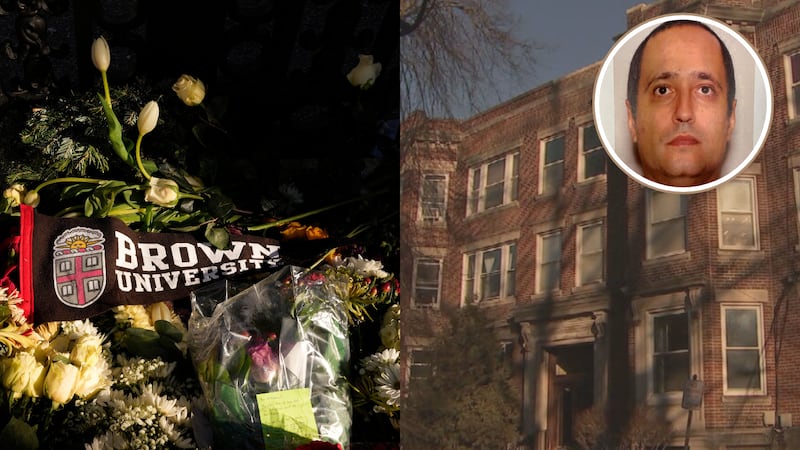BOSTON — Isolation and social distancing protocols have been tough on us all, and it’s especially taking its toll on those struggling with addiction.
Programs across the state of Massachusetts have been adapting to try to stay connected with people in depths of solitude.
The limited access to in-person 12-step and other meetings has been a tough obstacle to overcome.
Susan Kinnane, of Eastham, told Boston 25 News she wishes she could have done more to save her son before it was too late.
Isolation/social distancing protocols blamed for significant increase in overdoses. How programs across Massachusetts are trying to stay connected w/ those battling addiction #Boston25 TONIGHT AT 11 pic.twitter.com/6UQzOYjI30
— Drew Karedes (@DrewKaredes) January 15, 2021
35-year-old Danny Vigliano had been living in a sober house in Falmouth. He died alone on the ground at the Brockton MBTA Station in August.
Toxicology reports showed fentanyl and ethanol in his system.
“He didn’t want to die. He was looking for an escape,” said Susan Kinnane. “I could see the sadness, and he did say he was lonely.”
Kinnane believes her son’s struggles were exasperated by the isolation of the pandemic.
“We all have to stay socially distant, and I think he understood that. I don’t think that changed the fact of how difficult it was,” said Kinnane. “The lack of human touch. It’s hard for me, and I don’t have the issues he had.”
The Massachusetts Department of Public Health compiles data related to overdoses, but there’s a delay in all of those details being released.
The Center for Drug Enforcement and Policy at the University of Baltimore runs the only program that collects national data on fatal and nonfatal doses in real time.
According to its Overdose Detection Mapping Application Program, there was a 17.59 % increase in overdoses across the country from March 19th- May 19th – around the time that stay at home advisories went into effect. That’s compared to the same time period the previous year.
The program found higher increases in parts of Massachusetts, including Falmouth. Data from the Overdose Mapping Application Program shows a 20 percent increase in overdoses there in 2020 from 2019.
“A routine is very important for someone in recovery,” said Richard Baker, Program Director for the Victory Programs Mobile Prevention Team. “Isolation increases risk for non-fatal and fatal overdose.”
Baker said the pandemic has also translated into less of a likelihood of someone being on hand with Narcan at the time of an overdose.
He said the ability to keep some centers open during the pandemic, including the Boston Living Center for the HIV positive community, has been pivotal.
“We’ve shifted our programming to figure out ways to do it safely. It’s been important for some of our members that we don’t close our doors,” explained Baker. “A lot of what we do doesn’t translate into a virtual atmosphere.”
Casa Esperanza, a bilingual and bicultural program in Roxbury, has also kept some of its in-person resources available in an effort to prevent people from falling through the cracks.
“Many of our patients have lost their jobs. Some are homeless. They don’t have the same access to resources that somebody else may have,” said Cecilia Plotkin, associate director of outpatient services at the Family Unidas clinic in Casa Esperanza.
Plotkin said many people in Latinx community that Casa Esperanza serves don’t have access to cell phones, WiFi or private spaces for virtual meetings.
The center on Eustis Street recently opened up telehealth kiosks on site, available Monday through Friday from 9 to 5, to help people stay connected with treatment.
“It’s for those who don’t have access to technology to come in and connect with internal and external providers,” said Plotkin.
Providers across the country continue to work to overcome hurdles in reaching people who are on the brink of relapse or trying to get clean.
“The isolation is a crucial component of this. We’re dealing with an epidemic while we’re dealing with a pandemic,” said Richard Curcuru, President and CEO of Gosnold Treatment and Recovery Centers.
Gosnold, which runs 11 facilities in Massachusetts, has seen a significant increase in call volume and those seeking outpatient services over the last six months.
The outpatient programs include virtual therapy sessions for both addiction and psychiatric services.
“Our call volume has grown about 20 percent in the last six months, and our outpatient volume has grown 200 percent. 200 times over the last six months,” said Curcuru.
The staggering statistics are not surprising to Kinnane. She knows firsthand how hard it was for her son to stay on track during these challenging times.
“He called me the day he died. He was drinking,” she said. “I deal with the guilt every day. Why didn’t my motherly instincts just tell me to bring him home?”
Kinnane worries that the prevalence of the powerful opioid fentanyl is posing a deadly threat to people who may not know they’re taking the drug.
The synthetic drug, which can be 50 to 100 times more powerful than morphine, can be found in a pill form that looks like a prescription drug. It can even be laced in marijuana bought on the streets.
Fentanyl was found in 93 percent of all opioid related deaths in Massachusetts in 2019 and 2020.
Download the free Boston 25 News app for up-to-the-minute push alerts
>> Complete local and national coronavirus coverage here
RESOURCES:
- Complete local and national coronavirus coverage here
- Follow us on Facebook and Twitter | Watch Boston 25 NOW





